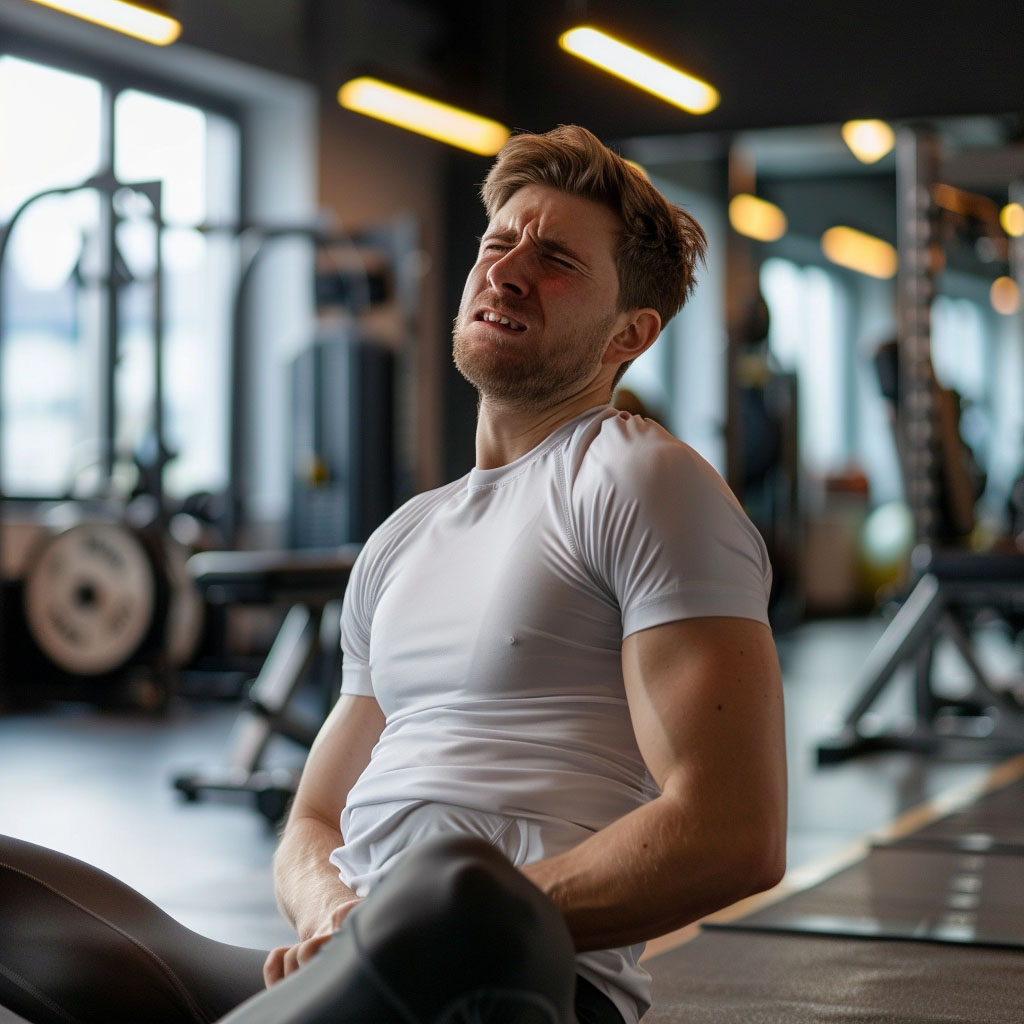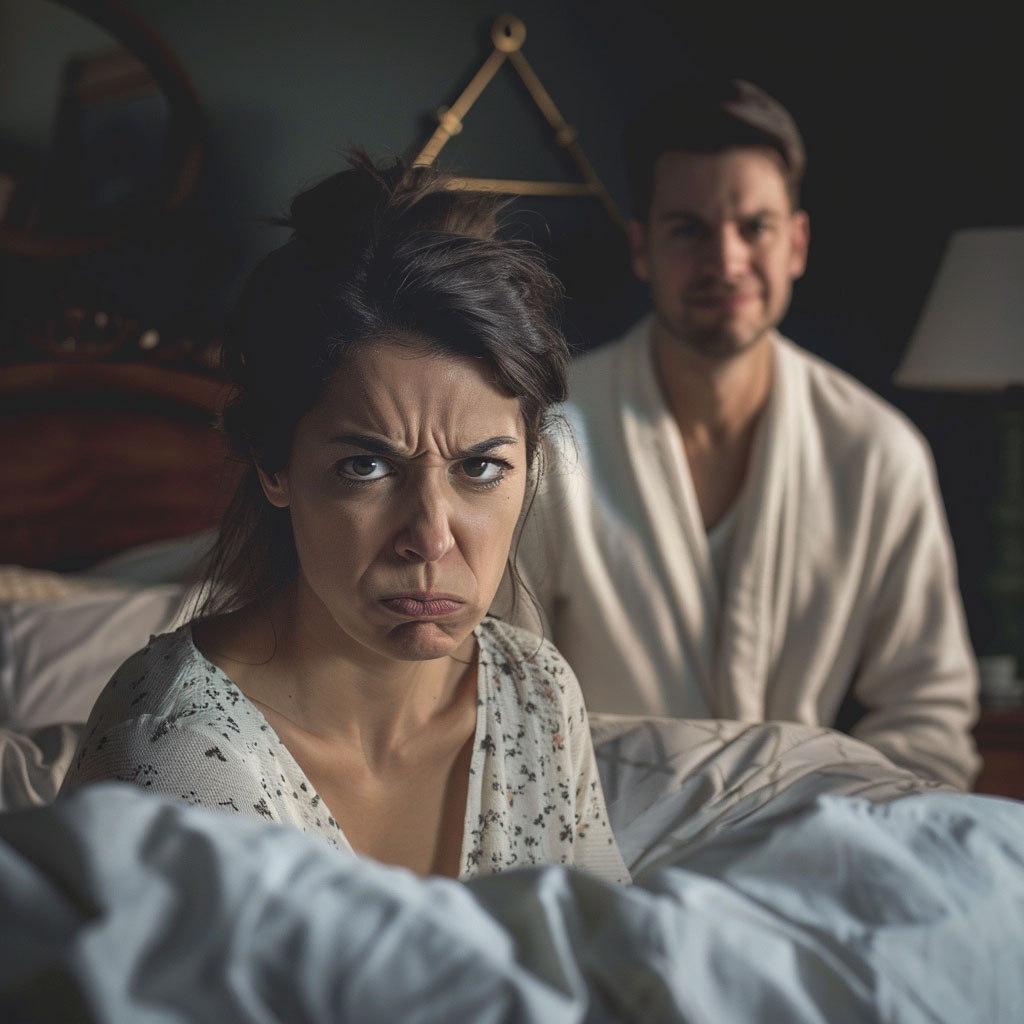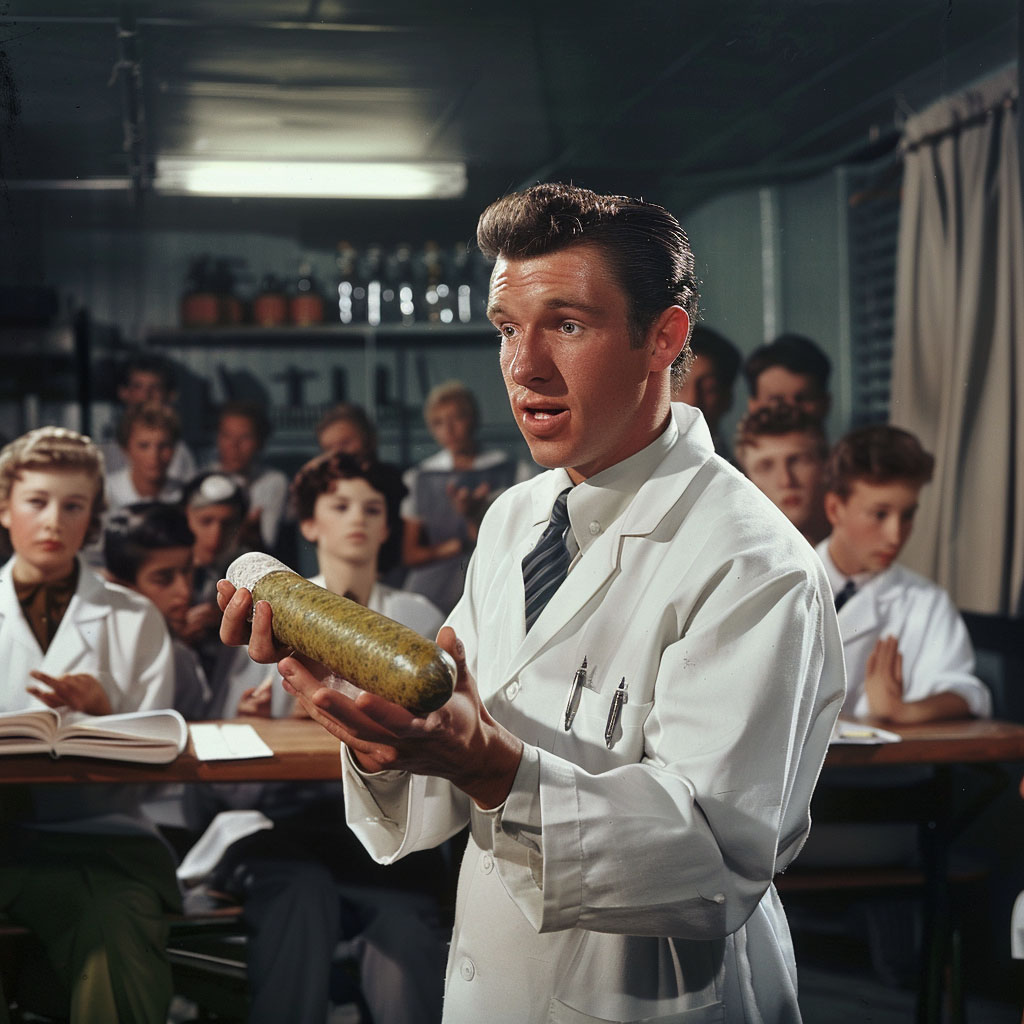Welcome to the club, gents, where the drinks are cold, the camaraderie is warm, and the conversations occasionally veer into the less charted territories of men’s health. Today, we’re unpacking a topic that, for many, feels as welcome as a fart in an elevator: premature ejaculation (PE). It’s the uninvited guest at the party of manhood, prevalent yet peculiarly hush-hush. Imagine if your sexual performance were like a 100-meter dash where you’re Usain Bolt breaking records every time, but honestly, you’d rather pace it like a marathon. That’s PE for you – eager but not always endearing. What’s our end game, you ask? To shed the cloak of silence, inject a bit of humor, and focus on prevention and early education for the young stallions among us.
Understanding Premature Ejaculation: What It Is and Isn’t
So, what is this shadowy figure lurking in the bedrooms of men worldwide? Premature ejaculation is essentially the Usain Bolt of the bedroom – crossing the finish line way before anyone’s ready. Medically, it’s defined as ejaculation that occurs sooner than desired, either before or shortly after penetration, causing distress to one or both partners. But let’s be real; in practical terms, it’s like hitting the snooze button on your alarm, and it goes off immediately. Not exactly the timing you had in mind.
Debunking PE Myths
Navigating the sea of misinformation surrounding premature ejaculation (PE) is like trying to find a needle in a haystack, except the needle is logical advice, and the haystack is made of old wives’ tales and locker room talk. Let’s debunk a few classics, shall we?
Myth 1: PE is not a marker of your masculinity
Having a PE problem doesn’t mean you’re less of a man than the next guy who might be more of a slow burner. And no, it’s not always a psychological issue, so let’s not jump into Freudian excuses every time the bedroom Olympics end prematurely.

Myth 2: PE is rare, a loner’s problem
Spoiler alert: Premature ejaculation is as common as finding a left sock without its partner. Many men navigate these choppy waters at some point in their lives, so if you’re in this boat, you’re in good company.
Myth 3. PE is the end of the world or your sex life
With a sprinkle of patience, a dash of education, and a willingness to explore solutions, it’s as manageable as your Sunday morning hangover.
Myth 4: Only Young, Inexperienced Men Suffer from PE
This is like saying only teenagers can have acne. Just as adults can have a breakout moment, men of all ages can experience PE. It’s not reserved for the rookie squad; even the veterans can face it. Experience might teach you a few tricks, but it doesn’t grant immunity against PE.
Myth 5: Thinking About Something Gross or Boring Will Delay the Inevitable
Ah, the old ‘think about your grandmother or baseball stats’ tactic. While distraction techniques can have their place, turning your erotic encounter into a mental slideshow of non-sexy thoughts is hardly the solution. That’s about as helpful as attempting to crack complex algebra problems while you’re pounding the pavement in a grueling marathon. Sure, you’re distracted, but at what cost?
Myth 6: PE Means There’s Something Wrong With You Physically
While there can be physical factors contributing to PE, it’s not a definitive sign that there’s something wrong with your health. It’s like assuming every time your car makes a weird noise, it’s about to explode. A combination of factors, both physical and psychological, can influence PE. It’s complex, much like trying to understand why we can’t resist clicking on clickbait.
Myth 7: More Sex Will Cure PE
The idea that simply having more sex will ‘cure’ PE is like saying eating more will help you lose weight. It’s not about quantity; it’s about understanding, technique, and sometimes seeking professional advice. Practice makes perfect, but only if you’re practicing the right way.
Myth 8: Alcohol Helps You Last Longer
While a drink or two might relax you, relying on liquid courage to delay ejaculation is a slippery slope. Alcohol can impair your sexual performance and judgment, leading to decisions that make sense only to your inebriated self. This fix is like a quick patch-up job for an issue that actually demands a more intricate and detailed strategy.
Understanding PE involves separating fact from fiction and realizing that while it’s a common issue, it’s not insurmountable. With the right approach, communication, and sometimes a bit of professional guidance, it’s possible to navigate these waters without resorting to old wives’ tales or myths better suited for a comedy sketch.

The Science of PE: Why It Happens
Diving into the nitty-gritty of premature ejaculation feels a bit like trying to understand why your phone’s battery drains faster than a cold beer on a hot day—it’s complicated, but let’s break it down. At its core, PE involves a mix of psychological and biological factors that make the body jump the gun, so to speak.
Physiologically, ejaculation is governed by a symphony of hormones, nerve signals, and emotional cues, playing out in the most intimate moments. Think of it as your body’s own version of a high-speed internet connection, where the signals can sometimes move a tad too fast. When it comes to this happiness-linked brain juice, serotonin, its part in the grand scheme of things is pretty crucial. Low levels can lead to faster trigger times, making your sexual escapades shorter than a commercial break.
Hard Truths: Uncovering the Reality Behind ED Myths(Opens in a new browser tab)
Anxiety and stress are like the unwanted seasoning on your libido, exacerbating PE. They send your sympathetic nervous system into overdrive, preparing for a sprint when you’re really aiming for a marathon. It’s as if your body mistakes the starting line for the finish. Hormonal imbalances, too, can tilt the scales, making your sexual responses more akin to a sprinter than a long-distance runner.
Communication: The Bedrock of Sexual Health
Now, onto a topic as essential as remembering your anniversary—communication. The bedrock of not just a healthy relationship, but also a thriving sexual health, is talking about it. Yes, discussing PE might initially seem as awkward as explaining a browser history to your grandma, but it’s crucial.
Opening up to your partner about PE can transform the experience from a solo struggle to a team effort. Start the conversation outside the bedroom, in a non-sexual setting, to minimize pressure. Approach it with honesty and a dash of humor—“I’m a bit like a sports car, incredible acceleration but working on endurance” can break the ice.

Healthcare providers, on the other hand, are like your pit crew in the race of sexual health. They’ve seen it all, and talking to them about PE is as normal as discussing the weather. They can offer guidance, treatment options, and sometimes just the reassurance that you’re not alone in this.
To ace the chat, try this: rehearse your thoughts first. Zero in on emotions and fixes, not finger-pointing. Remember, being open isn’t weak—it’s bold. Like that perfect steak grilling scenario, it demands some trial and error but believe me—the end result is a game changer. Like mastering the art of grilling the perfect steak, it takes a bit of practice, patience, and the right tools, but the outcome is well worth it.
Lifestyle Adjustments: More Than Just Distractions
Imagine if someone told you that beating PE was as easy as swapping your morning coffee for green tea. You’d likely scoff and pour yourself a double espresso. Yet, the truth is, certain lifestyle tweaks can significantly impact your performance in the sack, and no, we’re not talking about just distracting yourself by counting ceiling tiles.
Firstly, exercise is like the Swiss Army knife of health benefits, improving everything from your heart rate to your bedroom stamina. Regular physical activity, especially pelvic floor exercises, can strengthen the muscles involved in ejaculation. Think of it as training for a marathon; only the finish line is more pleasure, less panting.
What you eat isn’t just about keeping your waistline in check. It’s key for your sexual health too, no joke. Noshing on a mix of fruits, veggies, and lean proteins – it’s like your own health hack. Why? Well, this sort of grub can help level out those tricky hormones and amp up your sexual wellness game. Cool right? So next time you’re hungry, remember that healthy choice could make more than just your taste buds happy! It’s like fueling your body with premium gas instead of that questionable discount stuff. And while we’re at it, moderating alcohol and quitting smoking can also prevent your sexual performance from going up in smoke.
Blending the practice of mindfulness into your lifestyle, alongside stress-diminishing activities such as meditation or yoga, can be a real boon to your overall health – trust me, it’s a total game-changer! Through the adept application of these mindfulness techniques, you cultivate an acute awareness of your body’s whispers and rein in your sprinting thoughts, morphing from a high-velocity powerboat into a peaceful sailboat that navigates arousal’s swells with amplified steadiness.
But let’s be clear, Rome wasn’t built in a day, and neither is sexual stamina. Quick fixes are like duct tape on a leaking pipe—temporary and ultimately unsatisfying. The bedrock of enduring transformation isn’t a mere diversion strategy, but the regular practice of wholesome routines.
Techniques and Exercises: Practice Makes Perfect
Now, onto the practical stuff—techniques and exercises that promise to turn you into the maestro of your own sexual symphony. Let’s demystify a couple of fan favorites: the start-stop method and Kegel exercises.
The start-stop method is like playing red light, green light with your penis. Here’s the breakdown:
- Get going until you’re about to hit the point of no return.
- Hit the brakes, stop all stimulation, and let the feeling of imminent ejaculation pass. It’s a good time to think about something incredibly unsexy if needed—like your neighbor’s Chihuahua barking at 5 AM.
- Once you’ve regained control, resume stimulation and repeat the cycle a few times before allowing yourself to cross the finish line. Expectation: a smooth ride. Reality: more stop signs than you’d like, but it’s all part of the road to endurance.

Kegel exercises , on the other hand, are not just for the ladies. Strengthening the pelvic floor muscles can help you slam the brakes on premature ejaculation. Here’s how to Kegel like a pro:
- Identify your pelvic floor muscles by trying to stop urination mid-flow. Those are the muscles you want to work.
- Contract these muscles for 3 seconds, then relax for 3 seconds. Do this 10 times in a row, thrice a day. It’s like a mini workout for your nether regions.
- The goal is to build up to longer holds and more repetitions. Expectation: feeling a bit silly at first. Reality: gaining more control over your ejaculatory reflex than you ever thought possible.
Practice makes perfect, and while these techniques might feel awkward or challenging at first, they’re proven strategies in the quest for better sexual stamina. Think of them as training wheels; with enough practice, you’ll be riding solo with confidence. Just don’t forget, keeping your sense of humor alive can turn the tide from irritation to enjoyment on this voyage.
The Role of Technology and Innovation
In an age where there’s an app for everything, from tracking your steps to watering your plants, it should come as no surprise that technology has muscled its way into the bedroom, aiming to tackle PE with a mix of innovation, ambition, and a dash of Silicon Valley flair. But before you envision strapping on some futuristic gadgetry that looks like it came from a sci-fi movie, let’s dive into what’s actually out there.
Apps that promise to train you like a Jedi in the arts of lovemaking, complete with exercises, timers, and feedback systems, are popping up faster than awkward boners in high school. From calming mindfulness apps aiming to boost your staying power in bed, to more straightforward PE training tools, the variety is vast. This strategy mashes up traditional methods we’ve talked about, served fresh in a tech-savvy design.

In an audacious maneuver, tech has staked its territory within the boudoir, seeking to rectify PE through a fusion of inventive ideas, lofty aspirations and just a touch of that distinct Silicon Valley charisma. (Photo by MidJourney)
Then, there are wearable devices that monitor arousal levels, vibrating to remind you to take it down a notch if you’re speeding towards the finish line. It’s like having a backseat driver for your sex life—helpful but slightly annoying.
Evaluating these tech toys and apps? It’s a bit of a balancing act. You’ve got to be skeptical, but keep an open mind too. While some innovations bring fresh solutions to old problems, others can seem like an overkill—akin to wielding a sledgehammer for cracking open a nut. The absurdity of some high-tech solutions can’t be ignored—it’s as if the tech world decided that if they can’t code their way to a solution, they’ll at least distract you with bells and whistles.
Yet, amidst the chuckles and eye rolls, there’s genuine innovation at work here. If you’re open to diving in, these gadgets can let you gain a deeper grasp and handle on PE by fusing old-school knowledge with cutting-edge tech. Just remember, the goal is improved sexual health, not winning a high score.
Seeking Professional Help: When and How
Knowing when to wave the white flag and seek professional help for PE is a bit like realizing you need to ask for directions—no one wants to admit it, but sometimes, it’s necessary. If you’ve tried the solo exercises, adjusted your lifestyle, and used every app under the sun, yet still find yourself sprinting to the finish line, it might be time to tag in the experts.
Shopping for a sex therapist or specialist is less about finding the best deals and more about comfort and expertise. Think of it as picking a personal trainer, but for your sex life. You want someone who doesn’t make you feel like you’re in for a root canal. Look for credentials, sure, but also seek out someone with whom you can openly discuss your most intimate details without wanting to crawl under a rock.
Remember, seeking help is not admitting defeat; it’s more like calling in the cavalry. Seeking help isn’t waving a white flag in defeat; it’s actually strategizing for the win.
Embracing the Journey
Embarking on the quest for better sexual health is less about sprinting to a finish line and more about enjoying the scenic route. It’s a journey, not a destination, and like any good road trip, it’s best approached with a sense of humor, a bit of patience, and the willingness to try new routes.
So, as you navigate the twists and turns of managing or preventing PE, remember to laugh at the absurdity, learn from the experiences, and maybe, just maybe, you’ll find that lasting longer in bed can teach you to appreciate the longer, richer moments in life. After all, isn’t there more to enlightenment than just a race to the finish line? Here’s to lasting longer—in bed and in life—and enjoying every minute of the adventure.
| PE facts and statistics |
| Prevalence of PE: Up to 1 in 3 men report experiencing premature ejaculation at some point in their lives, highlighting its commonality among men. (Source: Journal of Sexual Medicine) |
| Impact of Lifestyle on PE: Regular physical activity can improve symptoms of PE in up to 75% of participants, according to a study focused on the effects of exercise on sexual dysfunction. (Source: European Urology) |
| Effectiveness of Psychological Interventions: Psychological therapy can reduce PE symptoms and improve sexual satisfaction in approximately 50-60% of men. (Source: International Journal of Impotence Research) |
| Usage of PE Management Apps: A survey revealed that around 20% of men have tried using mobile apps or online tools to help manage PE, indicating a growing trend towards digital health solutions. (Source: Digital Health Journal) |
| Success Rate of Professional Treatment: Following treatment from healthcare professionals, including sex therapists, up to 65% of men report significant improvement in their control over ejaculation. (Source: Mayo Clinic Proceedings) |




